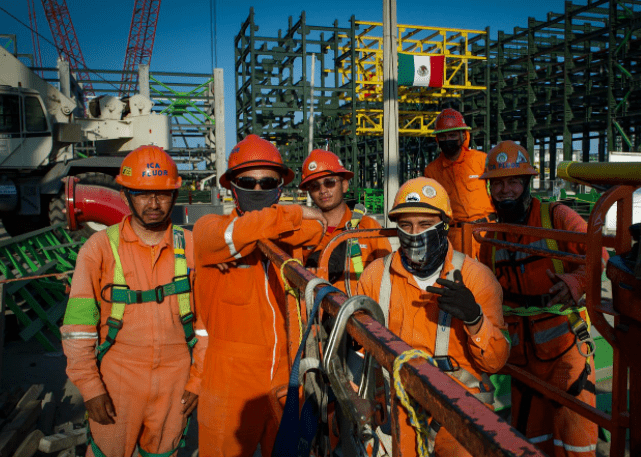Gasoline imports to Mexico totaled US$16.775 billion in 2023, an amount 28% lower compared to 2022.
In the context of that trade, Mexico’s Energy Ministry opened the Olmeca refinery in Dos Bocas, Tabasco, for testing on July 1, 2022, and the site is expected to process 340,000 barrels per day of crude oil and produce 170,000 barrels per day of gasoline and 120,000 barrels per day of low-sulfur diesel.
Mexico imports a substantial portion of its gasoline needs, despite being an oil-producing country.
With ups and downs, gasoline imports to Mexico had the following values in dollars: in 2019 and 2020 they were 17,101 million 10,263 million and in 2021 and 2022 they were 15,148 million and 23,303 million, respectively, according to data from the Bank of Mexico.
Gasoline imports
In 2017, gasoline and diesel price controls were liberalized in Mexico to allow prices to be determined according to market forces.
To mitigate the variation of benchmark fuel prices and the exchange rate, the Ministry of Finance and Public Credit implemented a weekly stimulus program for importers and distributors of gasoline, diesel and non-fossil fuels (which had originally been enacted in 2015 in response to changes in the oil market).
The stimulus has been renewed by presidential decree several times since its enactment, most recently on December 30, 2020, at which time it was extended through 2024.
The same presidential decrees have also included a related stimulus for fuel station permit holders that have been authorized by the Energy Regulatory Commission (CRE) to sell fuels to the public on the U.S.-Mexico border.
This stimulus to the northern border has allowed for a partial harmonization of oil prices in that area with those of neighboring U.S. cities.
In general, countries tend to implement strategies to strengthen their fuel production capacity, such as gasoline, in order to ensure energy self-sufficiency and reduce dependence on imports.

